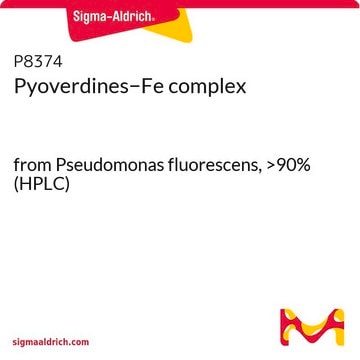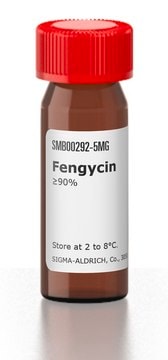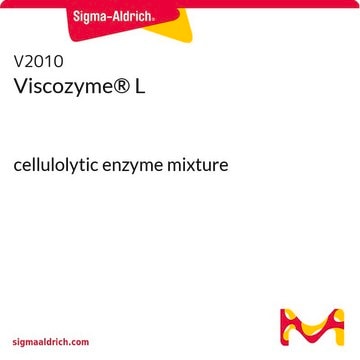E3910
Enterobactin
from Escherichia coli, ≥98% (HPLC)
Synonyme(s) :
Enterochelin
About This Item
Produits recommandés
Source biologique
Escherichia coli
Niveau de qualité
Pureté
≥98% (HPLC)
Conditions d'expédition
wet ice
Température de stockage
−20°C
InChI
1S/C30H27N3O15/c34-19-7-1-4-13(22(19)37)25(40)31-16-10-46-29(44)18(33-27(42)15-6-3-9-21(36)24(15)39)12-48-30(45)17(11-47-28(16)43)32-26(41)14-5-2-8-20(35)23(14)38/h1-9,16-18,34-39H,10-12H2,(H,31,40)(H,32,41)(H,33,42)/t16-,17-,18-/m0/s1
Clé InChI
SERBHKJMVBATSJ-BZSNNMDCSA-N
Description générale
Application
- as a positive control in tryptophan fluorescence quenching experiments
- as a reference standard in high performance liquid chromatography to quantify Kosakonia radicincitans culture medium siderophores
- in the crystallization reservoir to remove iron contamination in the medium and in Fe-enterbactin binding studies
Actions biochimiques/physiologiques
Produit(s) apparenté(s)
Code de la classe de stockage
11 - Combustible Solids
Point d'éclair (°F)
Not applicable
Point d'éclair (°C)
Not applicable
Certificats d'analyse (COA)
Recherchez un Certificats d'analyse (COA) en saisissant le numéro de lot du produit. Les numéros de lot figurent sur l'étiquette du produit après les mots "Lot" ou "Batch".
Déjà en possession de ce produit ?
Retrouvez la documentation relative aux produits que vous avez récemment achetés dans la Bibliothèque de documents.
Les clients ont également consulté
Notre équipe de scientifiques dispose d'une expérience dans tous les secteurs de la recherche, notamment en sciences de la vie, science des matériaux, synthèse chimique, chromatographie, analyse et dans de nombreux autres domaines..
Contacter notre Service technique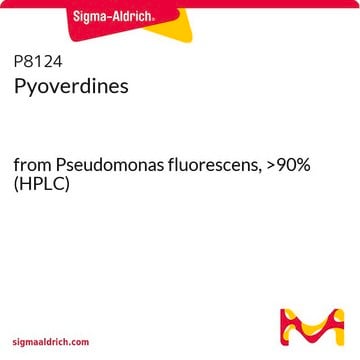
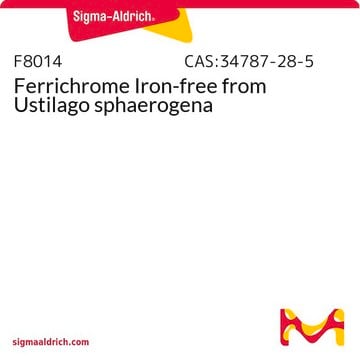



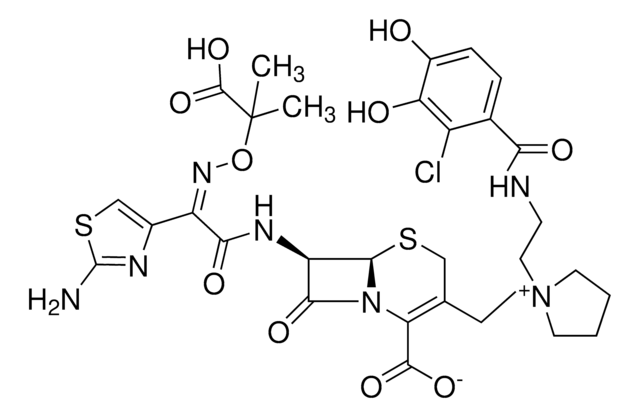
![(±)-(E)-4-Ethyl-2-[(Z)-hydroxyimino]-5-nitro-3-hexen-1-yl-nicotinamide ≥97%](/deepweb/assets/sigmaaldrich/product/structures/285/524/99543643-31d0-4c4f-b8da-9b1f872868ad/640/99543643-31d0-4c4f-b8da-9b1f872868ad.png)
